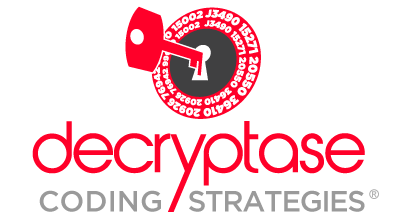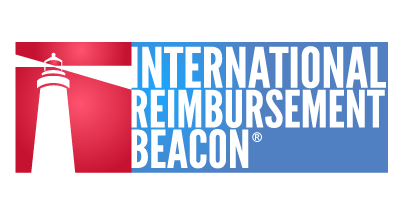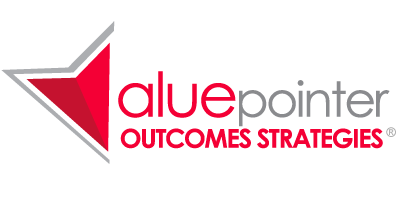Glossary of Reimbursement Terms
Glossary of Reimbursement Terms
Advance Beneficiary Notice (ABN)
A notification to the patient in advance of services that there is a probability that Medicare will not pay for certain services and the estimated cost to patient (formerly WOL, waiver of liability). Medicare has an ABN form available for download and commercial payers may have their own independent forms that need to be requested by the providers.
Ambulatory Payment Classification (APC)
The payment unit for Medicare Prospective Payment Systems to reimburse outpatient visits or procedures.
Ambulatory Surgical Center (ASC)
A facility administering outpatient surgical services for patients who do not need to occupy an inpatient, acute care hospital bed.
Ancillary Services
Medical services that support a disease treatment plan by a facility or inpatient program. These may include X-rays, pharmaceuticals, laboratory, or other services.
Appeals of Claims Denials
Submission of information requested by a payer to address the denial of a claim. The provider of the service or a patient may draft an appeal request providing rational on why the claim should not be denied.
Benefit Verification
Verifying insurance benefits including whether the patient is covered, the copay, coinsurance, or deductible amounts, with the insurer for each patient using the patient ID number and provider information before providing services.
Explanation of Benefits (EOB)
A summary statement from the payer that explains the claim, the amount that is the responsibility of the member, or the reason for non-payment.
Centers for Medicare and Medicaid Services (CMS)
The federal agency that manages Medicare, Medicaid, and several other federal healthcare programs.
Claim
Claims are also called bills for any medical or dental services.
“Clean Claim”
A properly completed claim form submitted to a payer with all data boxes containing current and accurate information and submitted within the timely filing period required by the insurer
Coding
In the context of medical technology reimbursement, coding is a nomenclature system used by insurers and providers to identify medical technologies like drugs, devices, diagnostics, patient diagnoses and procedures. Codes can also be used to track utilization and establish reimbursement rates for facility and professional services.
Consolidated Omnibus Budget Reconciliation Act (COBRA)
COBRA is a federal regulation that allows and requires past employees to be covered under company health insurance plans for a set premium. This program allows individuals to remain insured when their current plan or position ends.
Coordination of Benefits (COB)
If a person is covered under more than one group plan, COB allows the benefits to be coordinated in such a way that all payments are limited to 100% of the actual charge/ allowance. Primary and secondary insurance is identified by most plans.
Coverage
Coverage refers to the specific guidelines and requirements under which a payer will or will not provide benefits for a specific treatment. Coverage guidelines may be formally expressed in a coverage policy developed by the payer for new medical technologies or associated procedures if the payer considers this technology or the therapy to be important enough area to publish guidelines for the use of the technology or for service provision. Coverage policies may also be developed if a medical technology or a procedure hits the payers’ radar screen and they need to control utilization and/or cost. Frequently, private payers and Medicaid reference coverage policies developed by Medicare and the Medicare fees.
Current Procedural Terminology (CPT®)
The American Medical Association (AMA) developed the coding system for physician services that also serves as the basis for the HCPCS coding system.
Diagnosis (Dx)
The patient’s condition, sign, or symptom, as evaluated by a physician using the ICD-10-CM coding system.
Diagnosis Related Group (DRG)
A system of classifying medical cases for payment by Medicare under Medicare’s prospective payment system (PPS) for inpatient hospital services on the basis of diagnosis, etc.
Durable Medical Equipment (DME)
DME is any medical equipment that is for repeated use, is useable at home, and is not beneficial to a person without an illness or injury. Examples of DME include splints, braces, wheelchairs, canes, etc.
Explanation of Benefits (EOB)
A communication received from the insurer that presents the benefits that were reimbursed, charges that were denied, and codes for the reason for denial.
Fee-For-Service (FFS)
Refers to a payment for medical providers that is based on individual services rendered. Examples of fee for service payments include UCR and Fee Schedules.
Formulary
A list of specific drugs and their proper dosages, and the tier placement of the drugs, usually reviewed and approved for use by health plan members. Coverage for “nonformulary” drugs may be denied or limited. In some Medicare health plans, beneficiaries only receive coverage for formulary drugs.
Healthcare Common Procedure Coding System (HCPCS)
A three-level coding system, consisting of: CPT, National or Level 2, and Local or Level 3 codes. CPT and HCPCS Level 2 codes are used by the majority of health insurers.
Health Maintenance Organization (HMO)
An HMO provides services through a specific network of providers.HMO beneficiaries are limited to in-network providers for covered services. They typically select a primary care physician, referred to as the gatekeeper, who makes referrals to specialists when necessary. A referral is necessary to see a specialist or to receive non-emergency care from out-of-network providers.
ICD-10-CM
The International Classification of Diseases, Tenth Revision, Clinical Modification (ICD-10-CM) is a coding convention used by healthcare providers to classify and code all diagnoses, symptoms and procedures for patients treated in the U.S.
Length of Stay (LOS)
This is the number of days that a patient stays in a facility setting.
Medicaid
A joint federal and state program that covers the medical costs of the care for low incomes and disabled individuals. Medicaid programs vary from state to state.
Medicare
The federal health insurance program for qualified people who are over the age of 65 years, and certain younger people with disabilities or end-stage renal disease patients.
Medicare Part A (Hospital Insurance)
Insurance for Medicare Part A inpatient hospital stays, skilled nursing facility care, hospice care, and some home healthcare.
Medicare Part B (Medical Insurance)
Coverage for Medicare beneficiaries that helps pay for physicians’ services, outpatient hospital care, durable medical equipment, and some medical services that are not covered by Part A.
Medicare Part C
Coverage that replaces Part A and Part B Medicare coverage. This coverage may also replace Part D coverage.
Medicare Part D (Medicare Drug Benefit)
Prescription drugs that are not covered by Part B may be covered under the Medicare Part D drug benefit. Coverage is through private insurers that are contracted with Medicare.
Non-Participating Provider (Medicare)
A provider who does not sign a Medicare participating agreement, and therefore is not obligated to accept assignment on all claims.
Participating Provider (PAR)
A hospital, pharmacy, physician or ancillary services provider who has contracted with a health plan to provide medical services for a determined fee or payment.
Payment
Payment refers to the amount of reimbursement provided to the hospital and the physician for services related to the procedure.
Point of Service Plan (POS)
A type of plan in which the insured goes outside the plan for services that are covered under reduced benefits.
Preferred Provider Organization (PPO)
An arrangement whereby an insurer or managing entity contracts with a group of health care providers who furnish services at lower than usual fees in return for prompt payment and a certain volume of patients.
Primary Care Provider (PCP)
A healthcare professional who acts as a member’s personal healthcare manager. The PCP evaluates a patient’s medical condition and either treats the condition or coordinates required healthcare services.
Prospective Payment System (PPS)
Under Medicare, payments to hospitals for inpatient and hospital outpatient services are prospectively determined amounts based on a number of factors including the APC or the DRG assigned at discharge.
Out-of-Pocket Costs
Expenses incurred by the patient for medical care that was not reimbursed by the insurer. These include co-pay, deductible, or co-insurance payments.
Predetermination
The procedure that is required by some insurers to approve some procedures or medical technologies prior to service provision. This allows the patient to be aware of their costs prior to services being rendered.
Preferred Provider Organization (PPO)
A managed care plan in which patients use physicians, hospitals, and other providers that belong to the network and are considered preferred providers. Patients can use providers outside of the network for a higher cost.
Prior Authorization
A process of authorizing services, providing documentation to show the medical necessity of services, verifying patient benefits and provider fees.
Resource Based Relative Value Scale (RBRVS)
A government mandated relative value system implement January 1992 that is used for calculating national fee schedules for services provided to Medicare patients.
Third Party Administrator (TPA)
An organization that processes health care claims without bearing any insurance risk.
UB-92
A uniform billing form for submitting and processing institutional claims. It has a standardized format that merges billing information with diagnostic codes and most elements from the uniform hospital discharge data set. The UB-92 is also known as the HCFA-1450 form.
Usual, Customary and Reasonable (UCR)
A method of determining benefits through comparison of the provider’s charges to those of his or her peers in the same community or specialty charges for services that may be based on rates usually charged by physicians and providers in their specific locality.
Copyright © 2019 Global Integrated Reimbursement Services, Inc. All rights reserved.
GLOBAL INTEGRATED REIMBURSEMENT SERVICES, INC. and all contained services are trademarks of Global Integrated Reimbursement Services, Inc.
Please review our Terms of Use, and Privacy Statements for further information.








